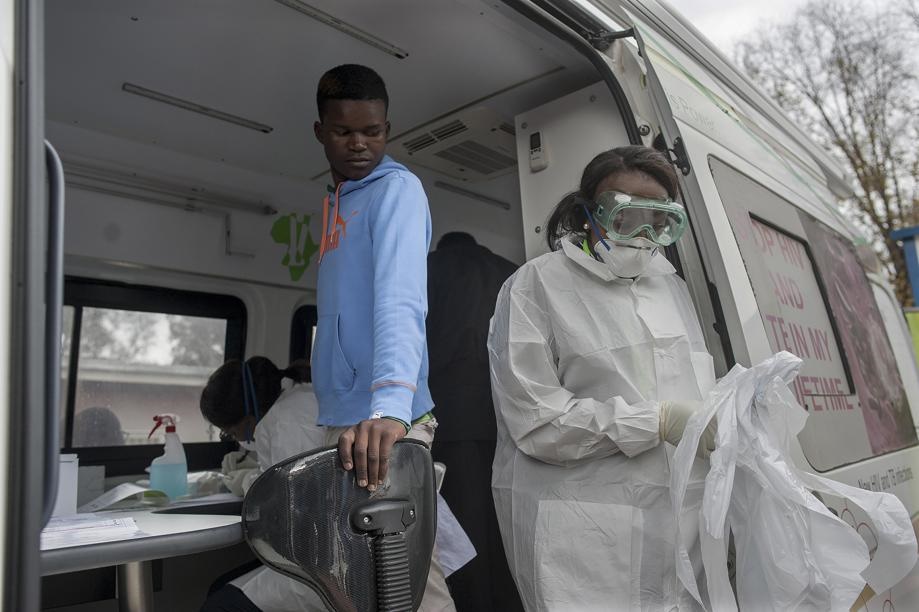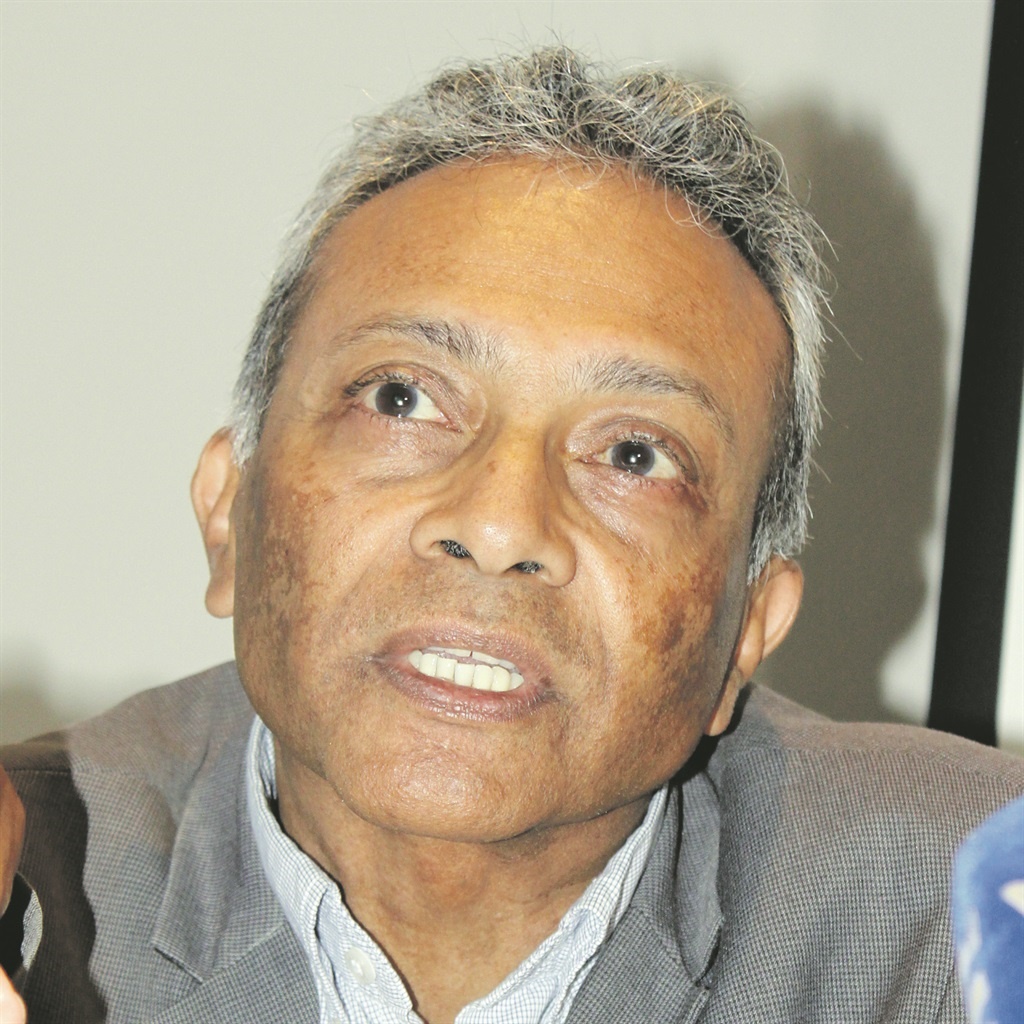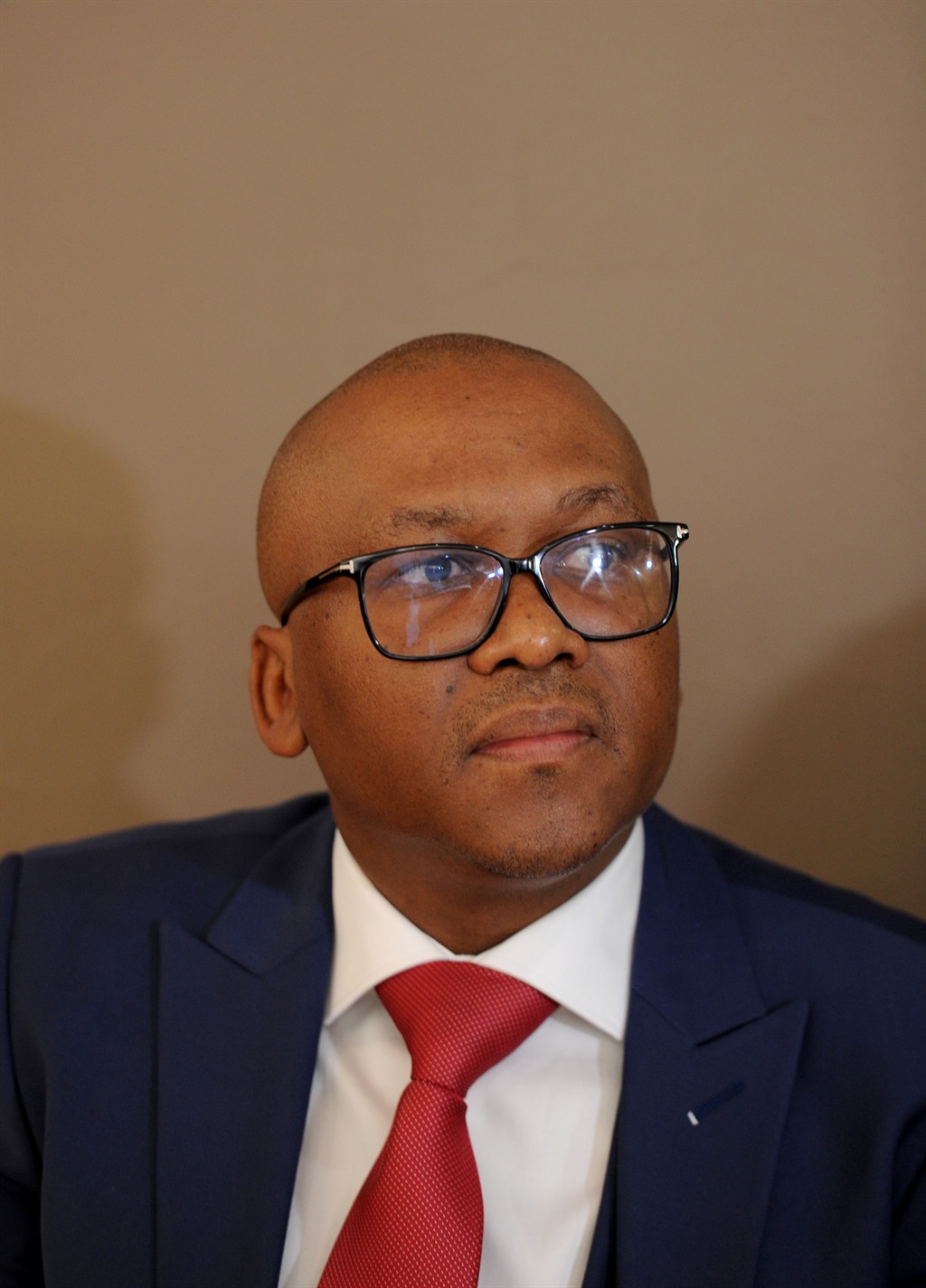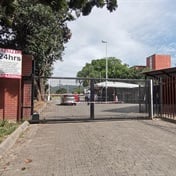
It’s all systems go as 10 000 health workers gear up to conduct mass screenings in hotspots countrywide
After weeks of delays caused by equipment shortages and logistical glitches, mass testing for the Covid-19 coronavirus is set to be ramped up this week when the government dispatches an army of 10 000 health workers throughout South Africa.
The government said that over the next two weeks, it would shift gear from “passive case finding” to “active case detection”.
As of last night, more than 2 028 people had tested positive for Covid-19 and 25 people had died from the disease.
Until now, most of the testing was conducted by the private sector and was restricted to individuals exhibiting two or more symptoms associated with the coronavirus.
So far, testing has also been confined to individuals who may have been in contact with people who tested positive or had travelled overseas before officials implemented a travel ban in the middle of March.
But as from this week, the mass testing army will conduct targeted and focused testing, especially in hot spots and in communities with a high risk of flare-ups.
FROM ‘PASSIVE FINDING’ TO ‘ACTIVE DETECTION’
Dr Yogan Pillay, the deputy director-general for communicable and non-communicable diseases, prevention, treatment and rehabilitation in the department of health, told City Press that authorities would be “going out there to the communities to look for the virus”.
“Demand for testing will increase significantly next week as we move from passive case finding to active case detection. Real testing will be happening in the next two weeks,” he said, adding that the two-week extension of the lockdown was informed by the need to ramp up testing, along with other reasons.
Joint operation centres have been established across all provinces.
Pillay added that while mass testing would be rolled out, officials would not test all people randomly. “We will focus on hot spots and high-risk areas which are likely to flare up because of one or a few positive patients. These are highly dense areas such as Alexandra, Mitchells Plain, Khayelitsha and Umlazi.”
In the past week alone, more than 120 000 people have been screened and more than 1 500 have been referred for testing.
Only a small fraction tested positive.
However, another senior doctor said the reason officials had been unable to conduct mass testing until now was the shortage of personal protective equipment (PPE) to prevent health officials from being infected while administering tests.
“But I know that PPE has arrived at the Durban harbour and it is being cleared. That is why there will be significant ramping up of testing from next week.”
Testing for the coronavirus can be conducted through different kinds of tests.
However, authorities have decided to use the polymerase chain reaction (PCR) tests. When using the PCR method, a sample is collected from a patient through a swab.
“The swab is then couriered to a laboratory. All laboratories are currently operating 24 hours,” said Pillay.
“After the sample is taken, it takes about 24 hours to confirm if the patient is positive or negative. The results are dispatched back to the testing centre electronically.”
The country has opted for the PCR route because it is able to pick up newly infected people.
“Once we are able to pick up newly infected people, we are then able to track and trace all their contacts. The biggest shortcoming with rapid testing is that it tells that you were infected at some point, but it does not tell us when, which is critical for tracking and tracing all your contacts,” Pillay said.
FIGHT AGAINST VIRUS WILL BE HI-TECH
According to Milani Wolmarans, chief operating officer at the department of health, the fight against the coronavirus will be data and technology driven.
The health workers will be armed with mobile devices, which they will populate with patients’ information.
“All that information will be fed to our data and nerve centre at the Council for Scientific and Industrial Research (CSIR).
The information coming from the frontline workers and provinces will then be used by us to make decisions,” she said.
She said the CSIR technology was “very powerful ... with the technical ability to be able to pull information from different sources at the same time”.
“Using the technology, officials will be able to map hot spots areas that are likely to flare up and we will be able to respond timeously,” she added.
UNEVEN HEALTH SYSTEM A BIG WORRY
This week, the Progressive Health Forum (PHF), an advocacy group of this country’s top health professionals, expressed concern over the ability of the country’s health services to respond to the pandemic.
In a statement, members of the forum cited “disquieting signs of a public health system response to Covid-19 that is unevenly and, in many cases, poorly managed”.
In its statement, the PHF, along with its co-signatories – namely, the SA Medical Association, the Democratic Nursing Organisation of SA, the SA Private Practitioners’ Forum and the Independent Practitioners’ Association Foundation of SA – said: “Worse still, a failure in the timely procurement of appropriate test kits (by the NHLS) has sparked a proliferation of private entities and interests peddling dubious testing kits.”
The forum had pointed to board and management disharmony at the NHLS and NICD, which was frustrating scientists, and called on the minister of health to resolve it.
Speaking to City Press this week about one of the PHF’s concerns – namely, the uptake of mass testing – Dr Aslam Dasoo, convenor of the forum and a member of the Stalwarts and Veterans of the ANC grouping, said: “We saw Covid-19 coming from early January, and we were certain it would hit our shores. We could also see the interventions that were working to ‘flatten the curve’ in other areas also hit by the outbreak that were working.
“Surely, the National Health Laboratory Service (NHLS), as the lead agency on this – along with its comprehensive distribution of laboratory services around the country – should have been at the forefront of this from the very beginning. But it is only now optimising its efforts and coming into it.
“It is not a secret that the National Institute for Communicable Diseases (NICD), which has all the epidemiological scientists, has been at loggerheads with its mother body because of very poor management.
“When you have your lead agency working off spreadsheets and pieces of paper to do the important work of contact tracing, you are a running a ‘mom and pop shop’; you are not a lead agency.
“There was a time that NICD scientists threatened to resign – right in the middle of this thing – and we had to step in. Of course, it couldn’t be allowed,” said Dasoo.
“It has taken some time, but there has been some movement now, especially after our statement and other interventions; and people are now getting up to speed.”
Dr Kamy Chetty, chief executive of the NHLS, said she was unaware of any butting of heads between the organisations, saying they worked as one organisation.
She said the NHLS and NICD jointly requested that provinces strengthen their systems for contact tracing and reporting, and had worked together with the national department of health to develop an electronic system.
“Both the NHLS and NICD were “not aware of any scientists who threatened to resign”, she said.
“Since January, I approved that whatever capacity is required, must be obtained,” she told City Press.
The laboratory service has the capacity to perform 15 000 tests within 24 hours, but sample size is determined by the number of samples to test sent to it by the provinces.
The number of tests has grown from 380 to 6 500 a week since the beginning of March.
“We can do many more tests, and we are hoping that as screening increases, the laboratory’s full capacity will be utilised,” said Chetty.
Regarding an app offered by the private sector to digitise contact tracing, she said the department of health was in talks with a number of stakeholders, including the private sector.
According to Health Minister Zweli Mkhize, more than 73 000 tests have been conducted.
According to other sources, a private sector hospital group had also tried helping the NICD with an app to digitise contact tracing so as to get staff off working from spreadsheets, but this was turned down by the NHLS in favour of developing its own app.
City Press also asked the NHLS about this.
Dasoo said that, while “we are very lucky” to have the CSIR’s “very robust data surveillance repository, which was used during the 2010 Soccer World Cup and for rhino poaching campaigns”, it needs data to be useful.
“And we don’t have enough testing to generate the data.”
PROVINCIAL TESTING
Gauteng Health MEC Bandile Masuku, who joined health workers in a screening and testing drive this week, said they had screened almost 56 000 people.
“We are happy that the bulk of tests are negative,” he told City Press.
In the North West, 300 Red Cross members are assisting with mass testing, and negotiations with the department of labour on the inclusion of community health workers are under way. In the past week, 27 000 people were screened across the province and 18 were referred for further tests.
In the Western Cape, health workers tested 8 215 people across 27 priority districts and 449 were referred for tests since last weekend.
In the Eastern Cape, 88 673 people in various regions have been screened and 144 were referred for testing.
In the Free State, 33 682 screenings have been conducted and 688 cases were referred for testing.
In the Northern Cape, up to 91 000 people have been screened and 546 were referred for testing.
Mpumalanga did not respond.
 | ||||||||||||||||||||||||||
Get in touchCity Press | ||||||||||||||||||||||||||
| ||||||||||||||||||||||||||
| Rise above the clutter | Choose your news | City Press in your inbox | ||||||||||||||||||||||||||
| City Press is an agenda-setting South African news brand that publishes across platforms. Its flagship print edition is distributed on a Sunday. |




 Publications
Publications
 Partners
Partners










